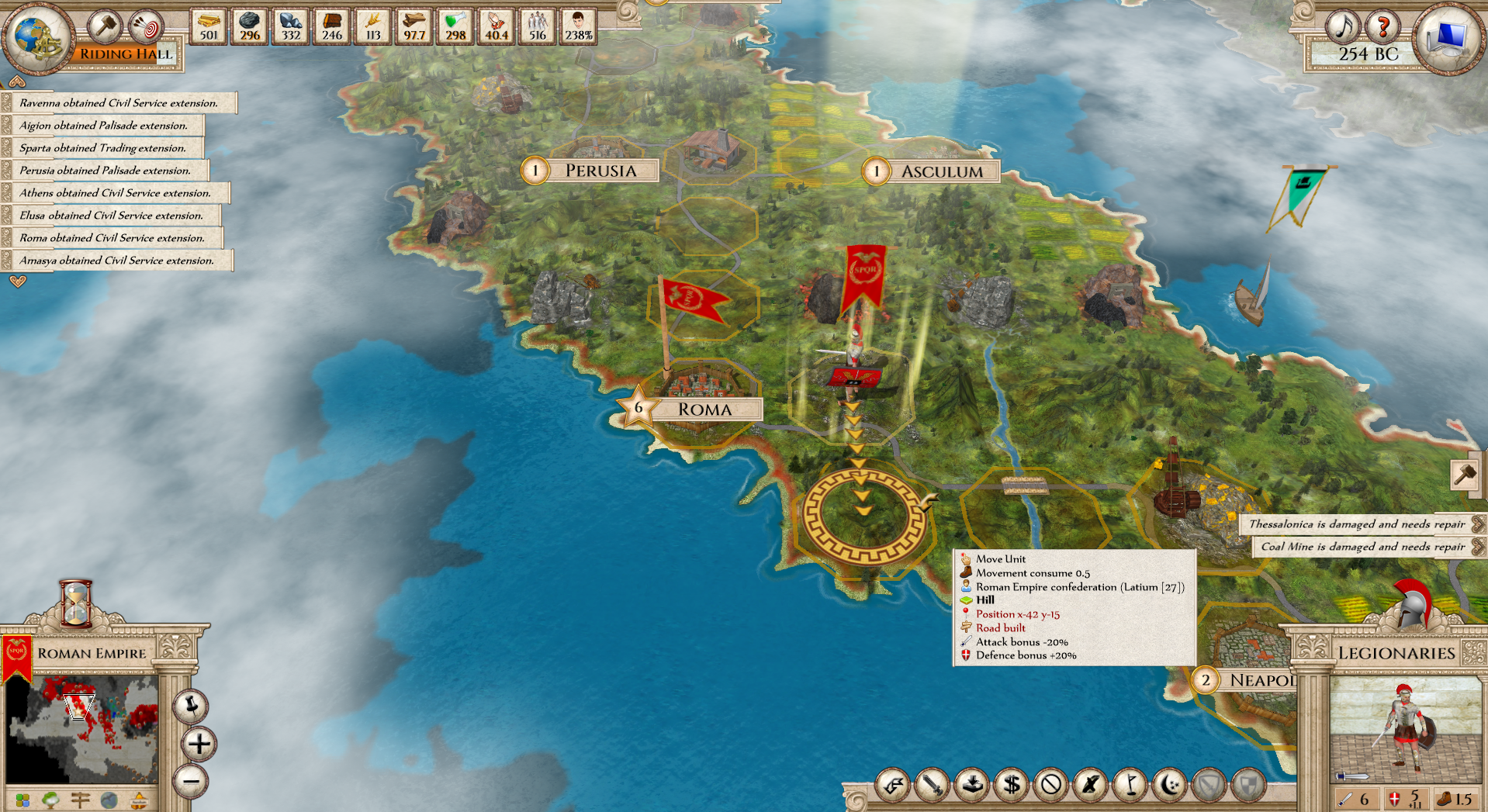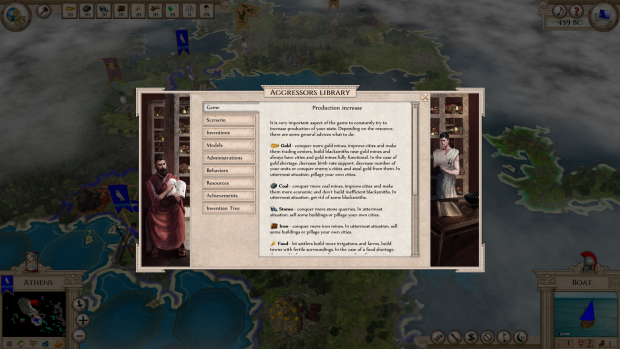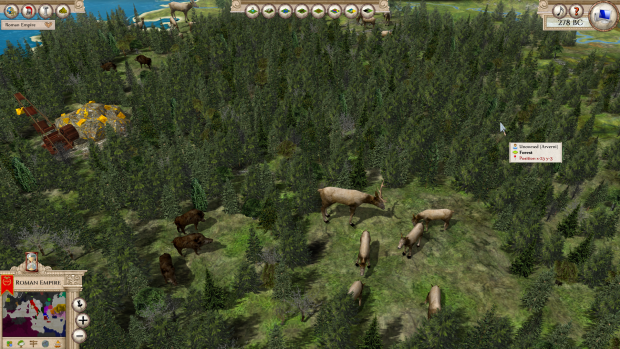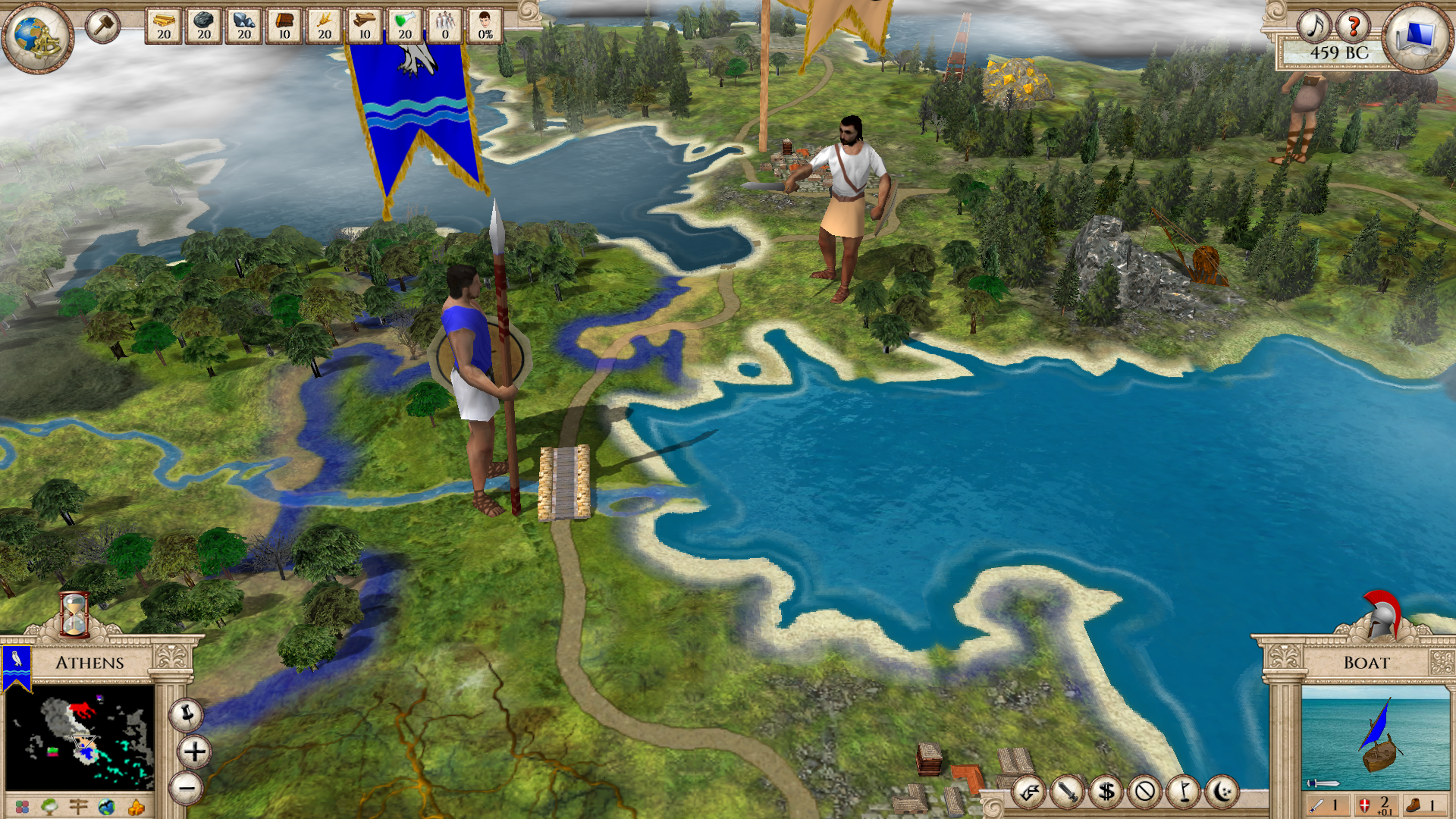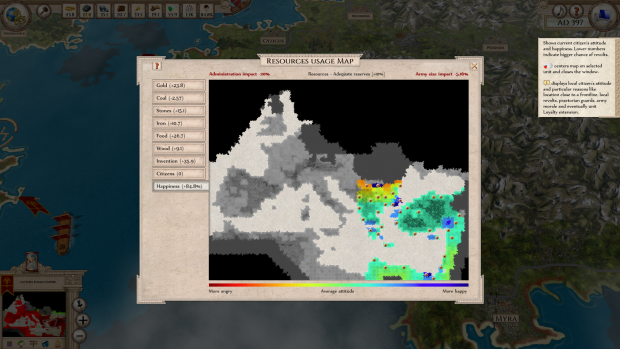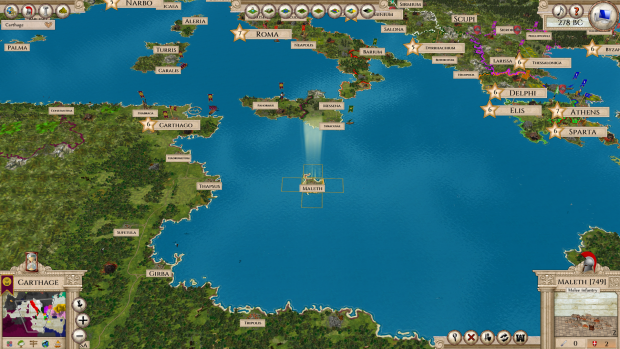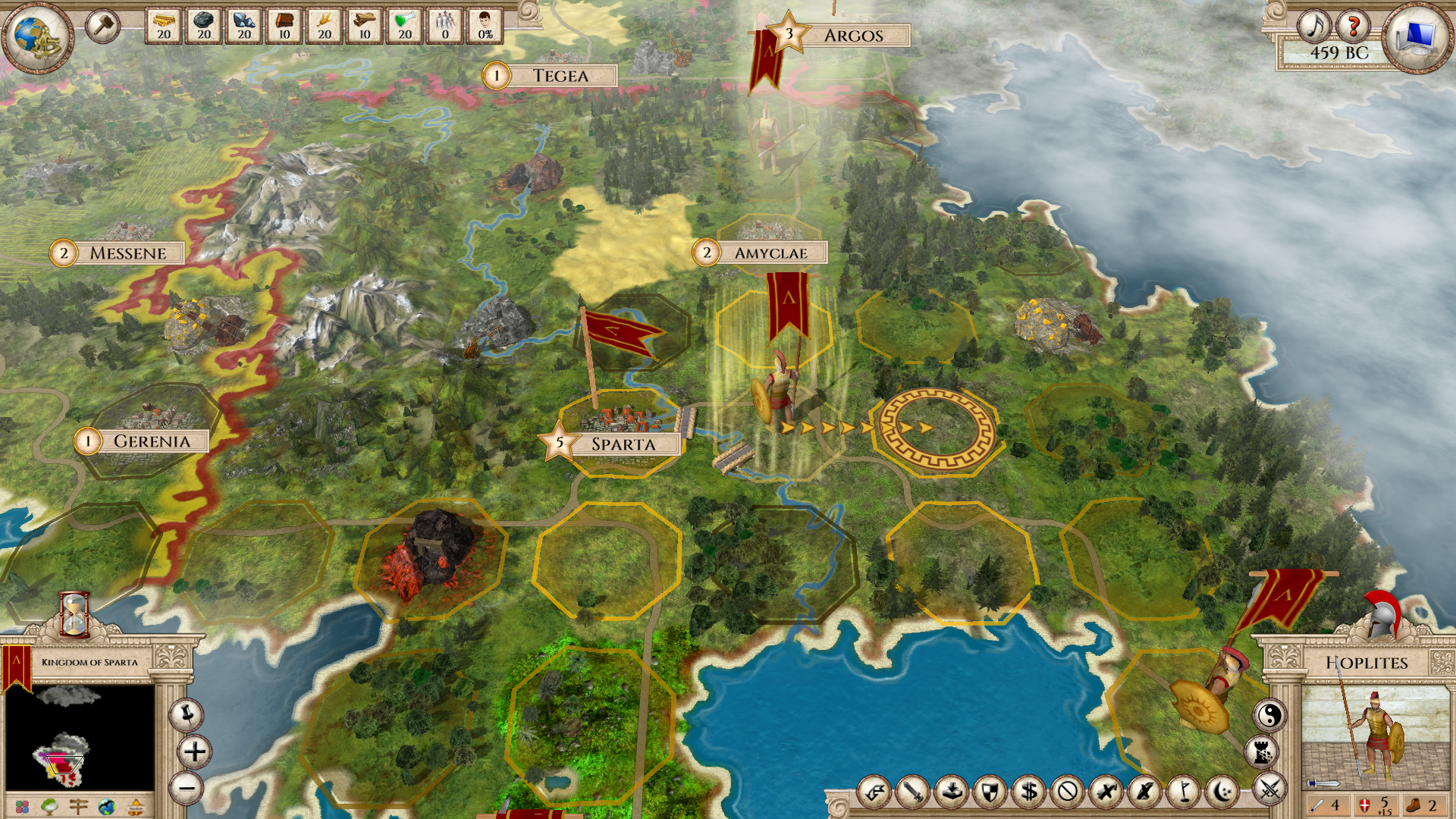Aggressors: Ancient Rome is a historical 4X turn-based strategy game focused on the period of Ancient Rome. Its development started already at the end of 2008 as a free time project of its main developer, who decided to create a strategy game based on his own board game. Apart from its board game roots, the Aggressors were also inspired by other games, such as Civilization IV, Colonization and Rome Total War. Older hit games, such as Panzer General and Centurion, however, played a role in the game’s motivation as well. From the very beginning of its development, the game was designed to support mods, various types of computer players and multiplayer support.
Over the years, a key part of the development became focused on the mod of Ancient Rome, which is now slowly nearing its completion. As the mod targets the era of ancient history, the team realized it was vital to not only create optimal rules and attractive game style, but also to achieve historical accuracy, i.e. to create as faithful a state of affairs as possible. This does not only mean accuracy in maps, which are based on historical sources. Also the way of playing and players' decision making needed to be as accurate as possible. The main emphasis was placed on the situations and state governing aspects, which were faced also by the rulers of ancient tribes and states.
The game contains many principles known from other strategy games such as micro-management, invention tree and various systems of government, but also a lot of new principles that help create a more faithful representation of historical reality.
The tactical side of combat is also greatly emphasized, which means that the conflict locations and units used need to be planned carefully. Each unit's combat characteristics are designed for certain types of fight and change in various types of terrain. The army unit's morale also plays a significant role in conflicts. This can not only affect your chance of winning or losing in individual battles, but also influence the success of the entire military campaign. The army morale partially affects the population's satisfaction. If the citizens are unhappy, you may experience unrest, rebellion and in extreme cases even civil wars. Even large empires, whose rulers let their people suffer, are therefore also not safe. The population's satisfaction rate is therefore dependent not only on successful military campaigns, but also on wealth, feeling of safety and many other factors.
The player, however, needs to do more than just maintain happiness within their own country. They need to carefully and proactively maintain foreign relations with other players. The game's diplomatic possibilities are numerous, from classic war and piece dichotomies, through various types of alliances and agreements (of which there are more than ten kinds) to the option of linking states on administrative, economic and even military levels. The states can in this way agree on gradual connection of their forces and countries. A federation might be an example of this process, being a union of two and more states, in which the administrative center is concentrated in one capital and the whole federation is governed by a single player. But this player has to be very careful in maintaining all of the parts of this new collaboration, otherwise they will be threatened by a termination of contracts and disintegration of the federation.
Working with resources is also a key aspect of the game, especially the importance of food and gold cannot be overstated. The player must necessarily make sure that the inhabitants and army have sufficient food resources, otherwise they would be facing the risk of famine and gradual emigration of population beyond the state borders. If there's not enough gold, the army units themselves can start to rebel.
Another important responsibility of the player is to maintain a balanced population, as people are crucial as the workforce for building the state as such and also as a source for new army recruits. Army recruitment lowers the productive population of cities, which can gradually lead to the cities not having enough citizens. Therefore, if a player maintains a long war that requires training of new units, they will have to tackle the issue of low active population, as this will, of course, have a negative effect on the economic performance of the state. Cities with a large population, on the other hand, show a significantly larger consumption of resources, which will present the necessity of increasing production, especially of food. One of the ways of controlling the amount of population is birth rate support, but this does not come for free.
Another option of supplying men to the army, and yet avoiding the negative effect on the size of cities and resource consumption, is trading. Virtually anything can be traded, including slaves and knowledge. The trade routes are created and changed on the basis of their safety, administrative costs and, of course, political situation. The safety and length of routes also influences the overhead costs of the trade itself.
Every player has a certain set of game “objectives”. These objectives are in fact historically inspired tasks tailored to each country. Their completion is associated with special “rewards”. These objectives motivate players to lead their countries in a manner similar to their ancient counterparts. It is, however, purely on the will of the players and their current situation, whether they want to complete these objectives or create their own version of history.
Another important element of the game is the so-called sphere of influence. Based on their development, size and international position, the players gain influence, which can then be used to initiate unrest in nearby friendly or enemy provinces. Therefore, not every territory has to be conquered by brute force. Influential states can encourage the activities of subversive elements on foreign territory and so gradually increase the chance of particular provinces to choose to associate with their own state. Simultaneously, however, each state must be on the lookout constantly, as the state itself can become the target of such subversive activity, either by their friends or their foes.
The player can play the game for any one of twenty states, starting with the greats, such as Rome or Carthage, through the Greek city-states and to the Barbarian tribes migrating into the Mediterranean. The game contains several ways of winning and the player may change the winning strategy even during playing.
This, however, is just a small part of all the possibilities that the game Aggressors: Ancient Rome has to offer. In the following months we will gradually disclose in more detail how individual concepts work and intertwine.
Even though the game may appear extremely complex, most of these game mechanisms are hidden under the game’s surface. If the player chooses a lower difficulty level, they do not need to worry about them and can purely enjoy their conquest of the ancient world. But if they do want to test how difficult it would be to rule an ancient state, they can always choose a higher difficulty level, where it will be the player themselves who will have to make all the important decisions. The game therefore aims not only at diehard strategy fans, but also at those who like to test their governing capabilities in real historical context.
Stay tuned for more info, register at www.aggressors-game.com or on Facebook and Twitter and get to know more about this game even before its release.
